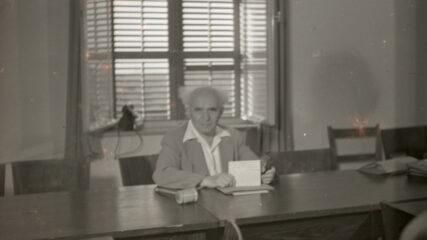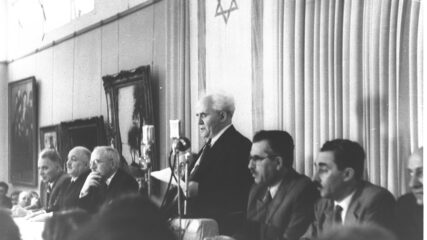Assembled here are key sources that have shaped the modern Middle East, Zionism and Israel. We have included items that give texture, perspective and opinion to historical context. Many of these sources are mentioned in the Era summaries and contain explanatory introductions.

A key figure in the Jewish Agency’s political department, Moshe Shertok (later Sharett) argues for a Jewish commonwealth/state in Palestine. Pragmatically he realizes Arabs in Palestine oppose the Jewish presence, yet he rejects a potential binational Arab-Jewish state.

The Status-Quo Agreement is an understanding reached between David Ben-Gurion, then the chairman of the Jewish Agency Executive, and the religious parties in the period before Israel became a state.

This draft spoke eloquently about protecting individual, religious, and civil rights for all. Instead individual civil rights in Israel were protected by a series of Basic Laws.

With no constitution, citizen rights and government responsibilities are stated in 14 laws. The Judiciary is covered in the Seventh Basic Law, February 1984.

The law authorizes appointed Israeli panels to investigate matters of public concern and state interest. These independent bodies are among Israeli democracy’s most trusted institutions, but there is not mechanism in the law to require their creation.

An Israeli commission of inquiry assigns responsibility to military leaders for failures before and during the Yom Kippur War. Prime Minister Meir and Defense Minister Dayan avoid direct blame but soon resign.

The most recent of Israel’s Basic Laws, the statutes enacted in place of a formal constitution, controversially asserts the Jewish nature of the state, even though almost a quarter of its citizens are not Jewish.

After Israeli Attorney General Gali Baharav-Miara met with newly elected Justice Minister Yariv Levin about the Netanyahu government’s proposal to overhaul the judicial system, the attorney general crisply and cogently offers her opposition to that proposal.







